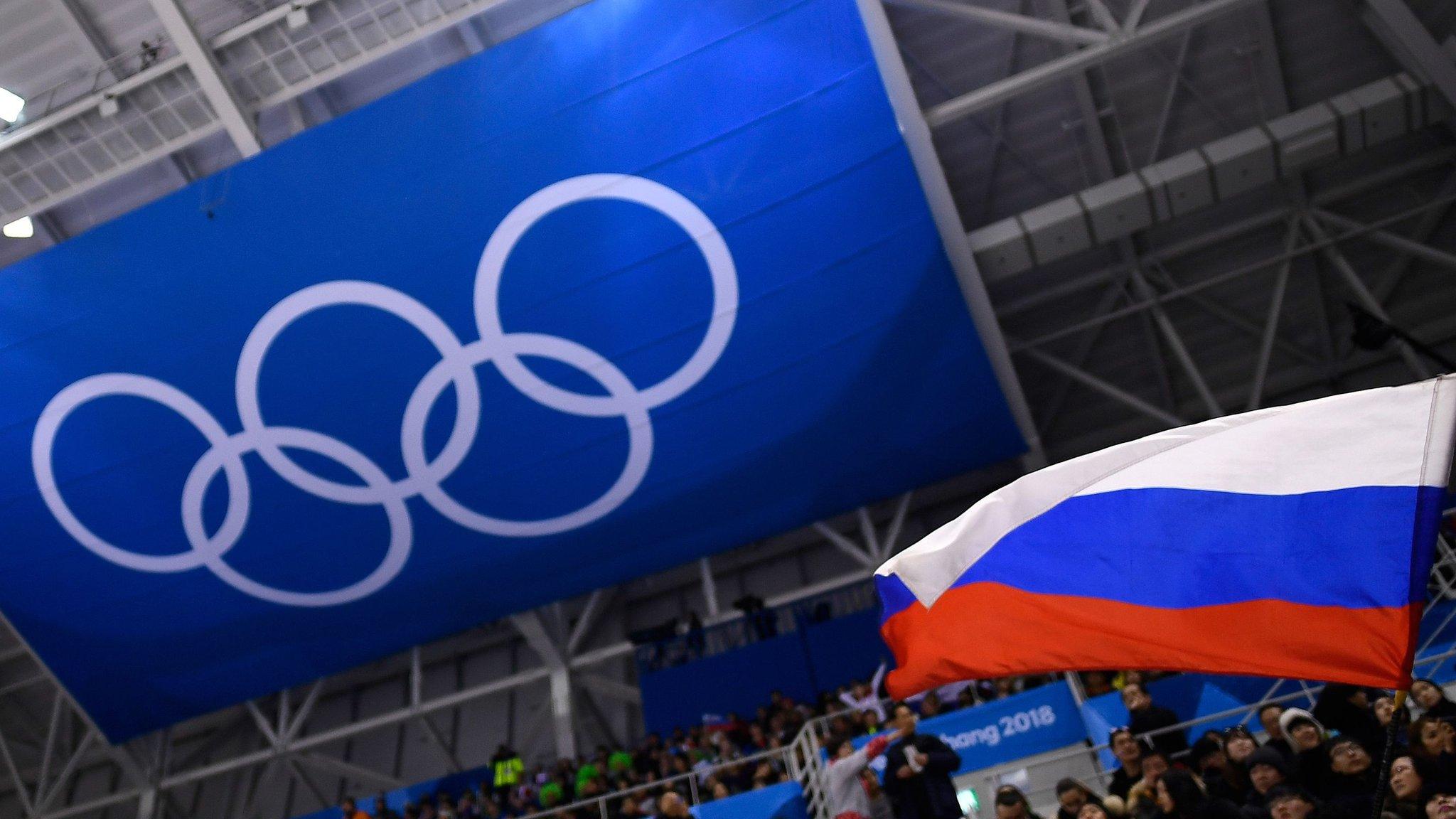Angered by Paris ban, Russia's media scorns 'the Olympics of Hell'
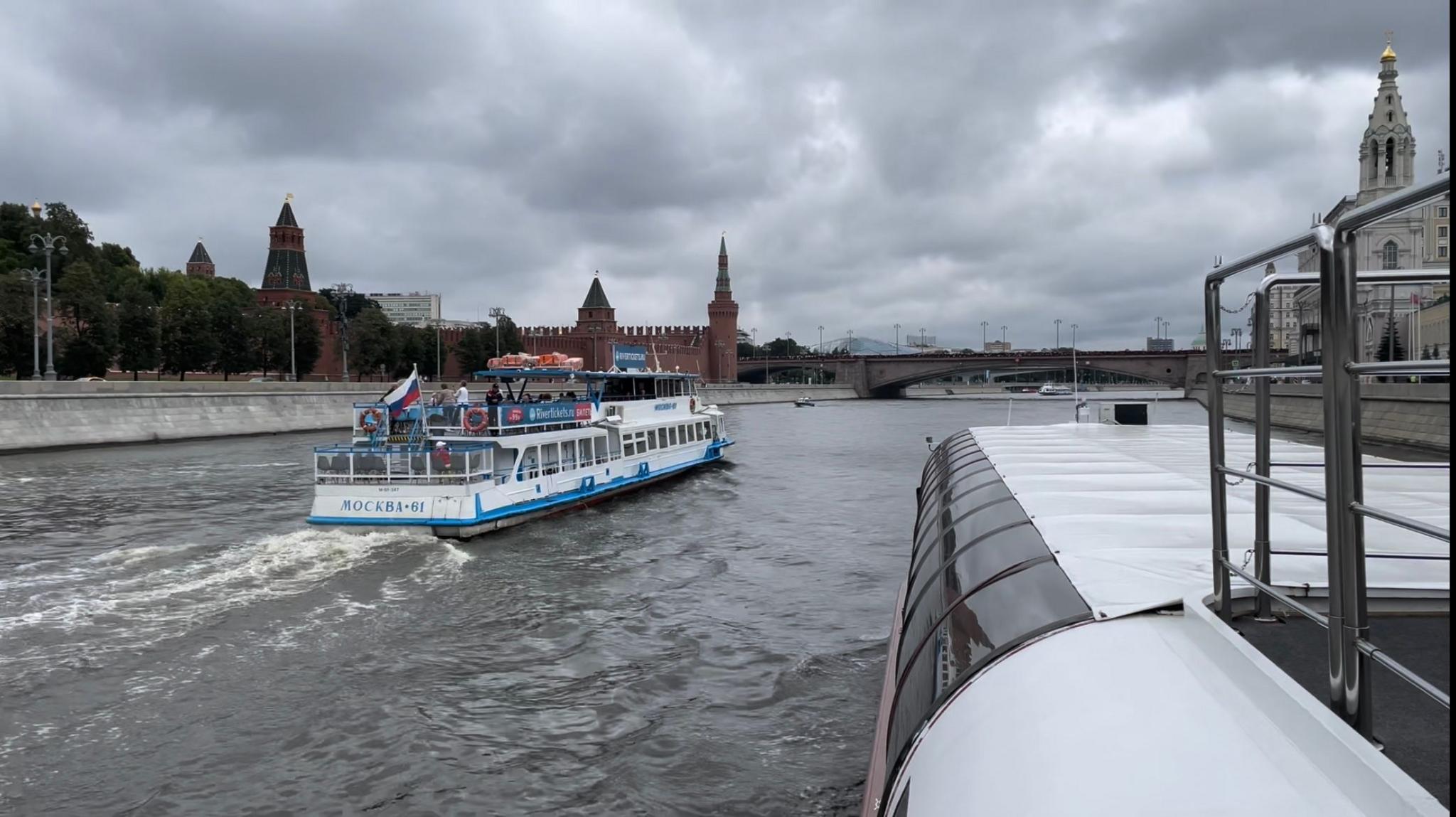
Russian athletes are not allowed to compete in the Paris Olympics because of their country's war in Ukraine
- Published
I’m sailing down the river with an Olympic champion.
No, it’s not the Seine. And this isn’t Paris. That’s clear when we cruise past the Kremlin.
Below deck, Tokyo 2020 gold medallist Mariya Lasitskene is taking part in the launch of an unusual project: a fusion athletics-fashion show-music event.
Mariya is not in Paris defending her Olympic high jump title. Team Russia is barred from these Games because of the war in Ukraine. A World Athletics ruling means that track and field stars from Russia aren’t even allowed to compete as neutral athletes.
And, for Mariya, that hurts.
“I can’t even bring myself to follow the athletics at these Olympic Games,” she tells me. “It’s too painful. We should be there. The Olympics are a festival, the greatest event in the world.”
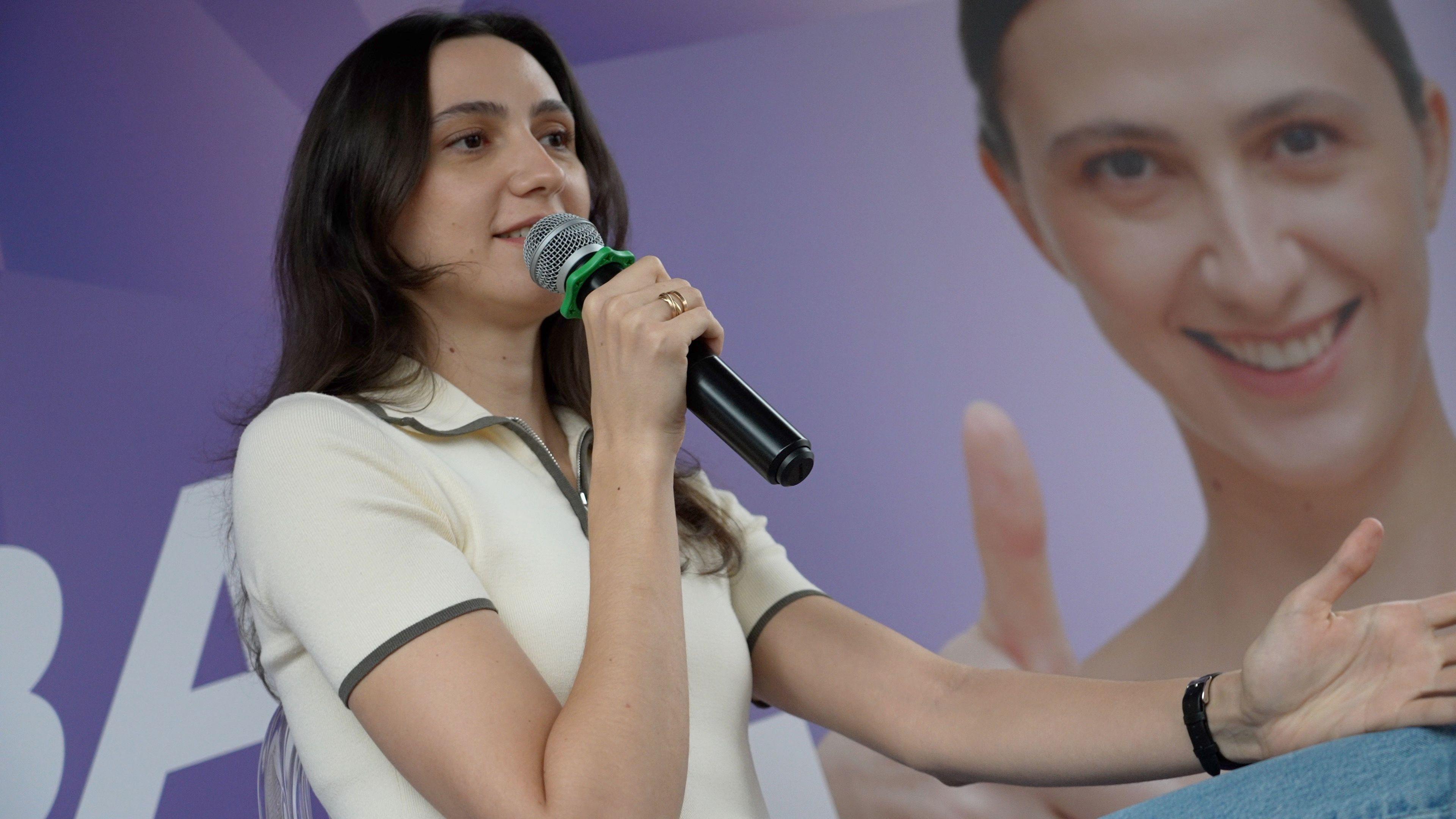
Mariya Lasitskene won gold in high jump at the 2020 Tokyo Olympics and is a three-time world champion
The Russian press doesn’t seem to think so. From the get-go, newspapers here have been pouring cold water on Paris 2024.
After an opening ceremony featuring drag artists and what some saw as a parody of Leonardo da Vinci’s The Last Supper, tabloid Moskovsky Komsomolets dubbed the Paris Olympics "The Games of Satan".
Another outlet, Argumenty i Fakty, has called them "The Olympics of hell".
It’s starting to feel like Russia could win the gold... for sour grapes.
“I thought the Olympic Games were about sport. No longer,” Russian MP Mariya Butina tells me.
“It’s about politics, religion, everything. It’s very sad because the original idea of the Olympics was to create peace.”
“But Russia has invaded Ukraine,” I point out. “That’s not ‘peace’, is it?”
“Russia has been protecting its people,” Ms Butina responds, echoing the official line here that Russia’s war in Ukraine is all about self-defence.
In reality, the Kremlin’s "special military operation" amounts to the invasion of a sovereign independent nation.
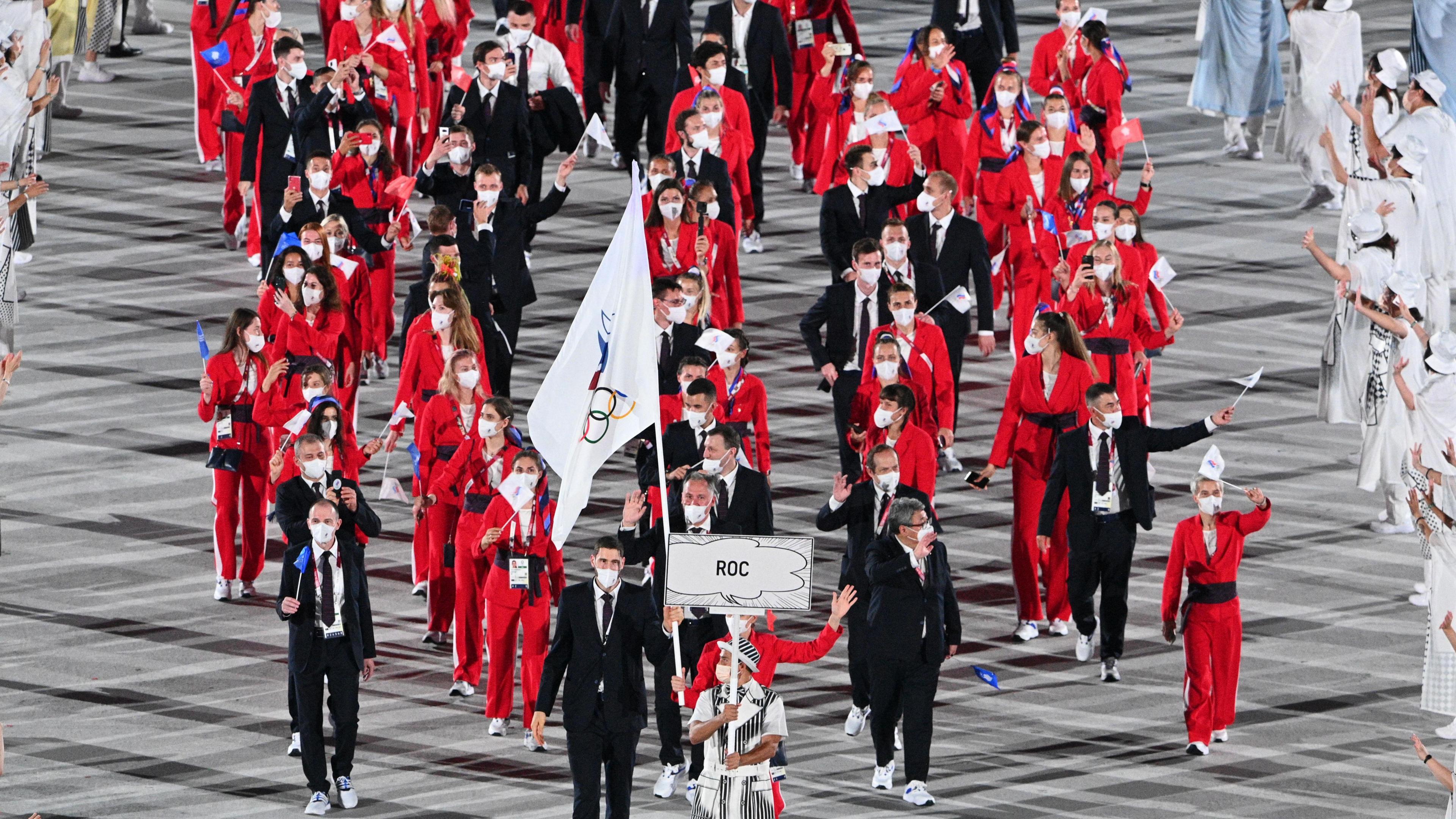
After the 2016 doping scandal, Russia competed in the 2020 Olympics as the Russian Olympic Committee (ROC)
In Russia, there was always huge interest in the Olympic Games.
But these Olympics are not even being shown on TV here. That hasn’t happened since the Soviet Union boycotted the Los Angeles Olympics 40 years ago.
Russia used to send hundreds of athletes to the Summer Games. This time round only 15 Russians have been competing in Paris as "neutral athletes" in sports like canoeing and tennis.
They’re not allowed to present themselves a national team, so no Russian flags, no national anthem. And the individual athletes have had to undergo a vetting procedure to establish they have no links to the Russian military or security agencies and do not actively support the war in Ukraine.
Bans in sport are nothing new for Russia.
In 2019, the country was barred from major international sporting events for state-sponsored doping offences. That suspension was later reduced to two years. At the Tokyo Games, Russian athletes competed under the flag of the Russian Olympic Committee.
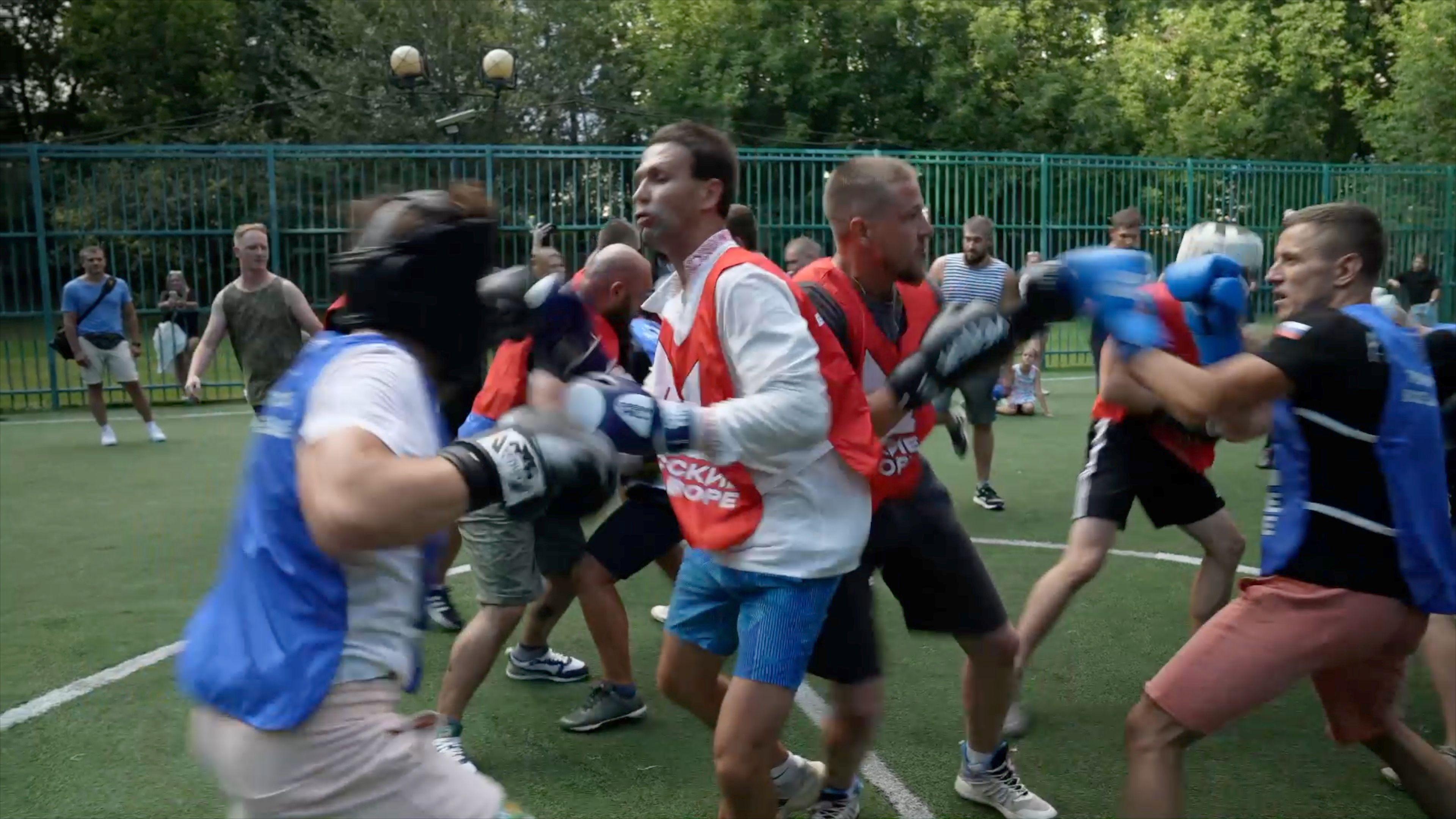
A Russian nationalist group has organised a sports festival in Moscow
There’s no vetting process at the sports festival I’m witnessing in a Moscow park.
A Russian nationalist group has organised an afternoon of what it’s presenting as traditional Russian recreations.
It is a world away from Paris 2024.
I can see two men lying on the ground engaged in "stick wrestling", straining to pull their opponent over.
What looks more like a gang fight is raging over on the football pitch, with teams in red and blue bibs engaged in "wall-to-wall fighting".
Some things here have nothing in common with sport at all. Over in one corner, Russians, young and old, are being invited to don army fatigues and military gear. Posing with guns, they’re having their photographs taken.
I detect little interest here in what is going on in Paris.
“I haven’t followed the Olympics for ages,” wall-to-wall fighter Vadim tells me. “Not since Russia was excluded from it. Russia’s being cancelled everywhere.”
For now, high jumper Mariya Lasitskene has her athletics-fashion show-music event to keep her busy. But Mariya concedes the Olympics are “every professional athlete’s dream".
“Every athlete wants to compete with the best. You can only do that at international competitions,” Mariya tells me.
“Sport is the battle of the strongest. I do miss it.”
Related topics
- Attribution
- Published22 July 2024
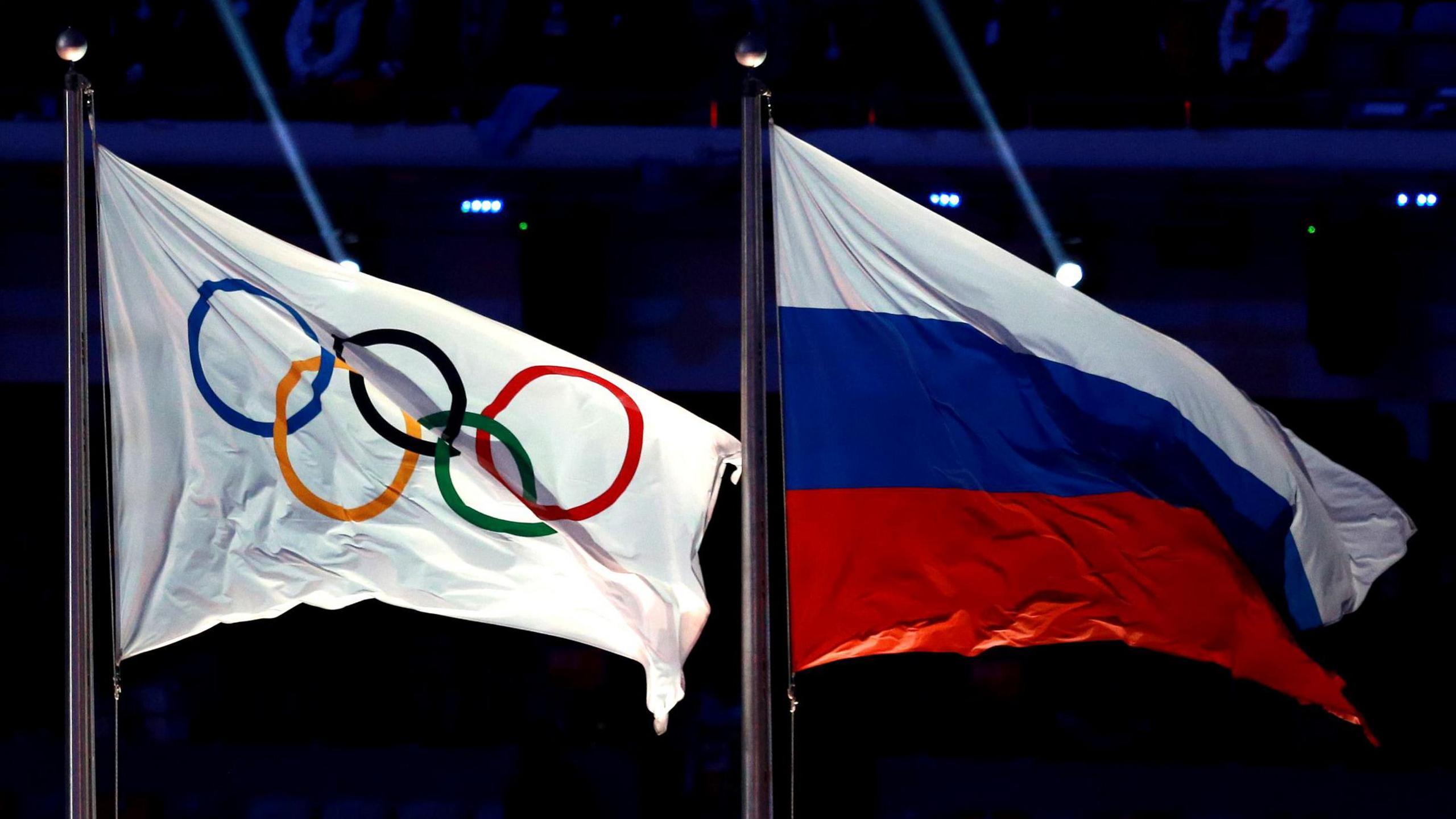
- Attribution
- Published12 October 2023
